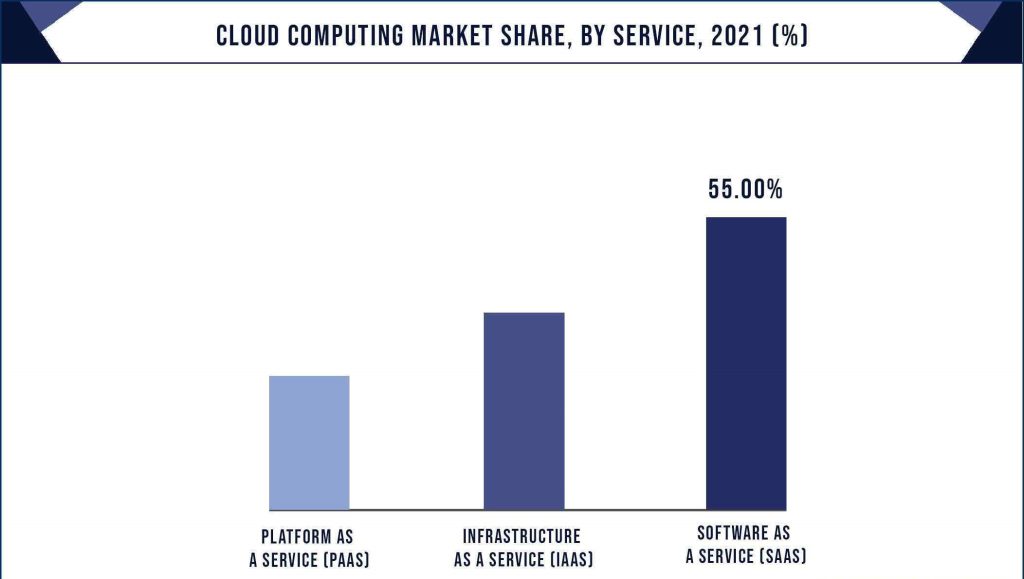Why is cloud computing in demand?
The demand for cloud computing has been increasing steadily in recent years among many companies. Because cloud service improves the efficient infrastructure, reduces operational expenses, and advances their business according to the necessary changes. Earlier companies relied on hardware technologies, but nowadays there was a quiet shift toward cloud service. During the covid-19 pandemic time, the demand for cloud computing increased. Cloud services have also helped organizations restore the enormous losses faced due to the pandemic and fulfill their customer demands.
Growth of Cloud computing industries
The cloud computing industry has experienced significant growth over the past decade and is expected to continue to grow in the coming years. According to a report by Grand View Research, the global cloud computing market size was valued at USD 266.0 billion in 2019 and is expected to grow at a compound annual growth rate (CAGR) of 14.9% from 2020 to 2027.
The Software as a Service (SaaS) segment of the cloud computing market is expected to have the largest market size in the coming years, as it provides businesses with a wide range of applications and services that can be accessed from anywhere with an internet connection. Almost 89% of global companies use SAAS products.

Why is Cloud Computing required?
- Reduce Expenses: One of the biggest advantages of cloud computing is its cost-effectiveness. With cloud computing, companies can avoid the high capital expenditures required to purchase and maintain on-premises hardware and software. Instead, they can pay for cloud services on a pay-per-use or subscription basis, which can be more cost-effective in the long run.
- Highly Scalable: Cloud computing allows businesses to easily scale their computing resources up or down as needed. This is particularly useful for businesses with fluctuating workloads or seasonal demands, as they can easily adjust their resources to match their needs.
- More Flexible: Cloud computing allows businesses to work from anywhere with an internet connection. This allows employees to access work files and applications from any device, making collaborating and working remotely easier.
- Security: Cloud service providers invest heavily in security measures to protect their customers’ data. This can provide businesses with a higher level of security than they might be able to achieve on their own.
- Innovation: Cloud computing enables businesses to take advantage of new technologies and services more quickly and easily. Cloud providers typically offer a range of cutting-edge technologies and tools that businesses can use to improve their operations and innovate in their respective industries.
How does Cloud Computing work in Organizations?
Cloud computing works in organizations by providing a platform for the delivery of computing resources, such as servers, storage, databases, and applications, over the Internet.
Here’s a simplified overview of how cloud computing works in an organization:
- The organization signs up with a cloud computing service provider for their suitable environment.
- The organization chooses the cloud services it needs, such as virtual machines, storage, or databases, and pays for them on a pay-per-use or subscription basis.
- The cloud service provider provisions the computing resources required by the organization and makes them available over the Internet.
- The organization can access the cloud resources from anywhere with an internet connection using a web browser or other interface provided by the cloud service provider.
- The organization can use cloud resources to run its applications, store its data, and perform other computing tasks.
- The cloud service provider manages the underlying infrastructure, such as servers, storage, and networking, and handles security, backups, and other operational tasks.
![]()
